US officials note China-US nuclear cooperation
Updated: 2016-03-29 11:56
By CHEN WEIHUA in Washington(chinadaily.com.cn)
|
||||||||
US officials spoke positively on Monday of the growing US-China cooperation in nuclear security ahead of the fourth Nuclear Security Summit (NSS) to be held in Washington later this week.
More than 50 heads of state and government, including President Xi Jinping, will attend the summit, aimed at better securing nuclear materials around the world from terrorists. Xi will be the only foreign leader to hold a bilateral talk with Obama.
Thomas Countryman, assistant secretary of state for international security and nonproliferation, said China and the United States understand and cooperate with each other when it comes to nuclear nonproliferation, as they do on every important global issue.
He cited as successful examples the joint comprehensive agreement with Iran and the collaboration on the United Nations Security Council Resolution 2270 overthe Democratic People's Republic of Korea's nuclear test and ballistic missile launch.
"And we work together also because we recognize that when Iran or North Korea wants to go shopping for nuclear or … ballistic missile materials, they frequently seek that equipment and technology in the Chinese economy," Countryman told an online briefing on the upcoming summit.
"So we cooperate, and we are becoming closer in our cooperation in preventing the spread of the technology that enables a regime like North Korea to threaten its neighbors. That's how important the relationship with China is," he said.
US Energy Secretary Ernest Moniz was in Beijing to open the China Nuclear Security Center of Excellence (COE) on March 18.The center, established based on a bilateral agreement, is a collection of labs, test sites and training facilities partly based at US installations. It is expected to serve as an important domestic nuclear security training resource for China's growing nuclear complex.
Bonnie Jenkins, coordinator for threat-reduction programs at the US State Department, described the opening of the COE as "quite a momentous occasion".
She revealed that China had committed to opening a COE at the first NSS in 2010. "And so we were very happy to see that this occasion finally happened," she said at the Monday briefing.
The center will be working with its counterparts in Japan and South Korea, which also have COEs, and with the International Atomic Energy Agency (IAEA), according to Jenkins.
"So that's all very positive, and we see this as a way in which we can continue to work with China in other areas, including nonproliferation," she said.
Jenkins described the center as a strong resource for strengthening nuclear security.
"So by having this center of excellence established by China is a way in which we can –it helps us to feel confident that China and other countries in the region will continue to strengthen the efforts to secure nuclear material in the future – and of course, importantly, train the people who are very important – the scientists, the technicians, engineers and everyone else who plays a role in nuclear security," she said.
James Acton, co-director and senior associate of the nuclear policy program at the Carnegie Endowment for International Peace, said China will play a more important role in nuclear security because it will eventually surpass the US on nuclear energy.
Cheng Li, director of the John L. Thornton China Center of the Brookings Institution, said the nuclear issue has always been a top priority for US diplomacy and security, and it has also become increasingly important for China.
"The United States can provide very good help in technology and management, things that China exactly needs," he said.
Li believes better bilateral cooperation in nuclear security will have a positive spillover effect in other areas such as cybersecurity, the economy and even the South China Sea, where the full potential of cooperation has not yet been tapped,due to deepstrategic distrust.
China and the US signed their civil nuclear cooperation agreement in 1985. The two countries also have initiated an annual bilateral Nuclear Security Dialogue, the first of which was held in February.
- Airplane- enthusiast farmer builds 'military helicopter'
- Beijing promotes eco-friendly burials ahead of Tomb-Sweeping Day
- More female students who study abroad are returning to China
- Problems the Northeast must solve
- Tough strut from world's factory to fashion empire
- China and UK team up in smart city development
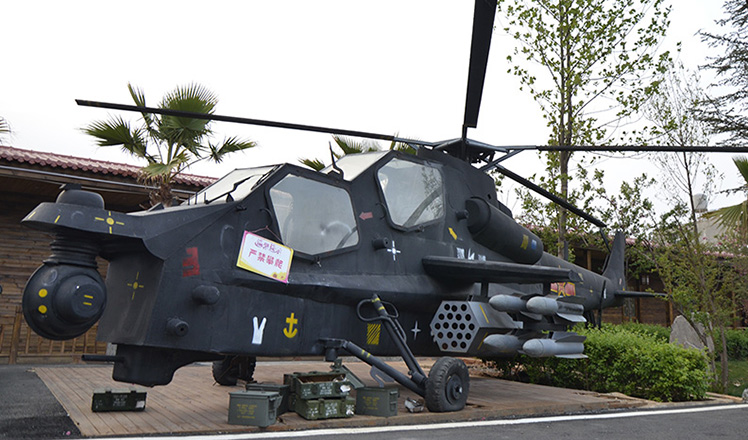
 Airplane- enthusiast farmer builds 'military helicopter'
Airplane- enthusiast farmer builds 'military helicopter'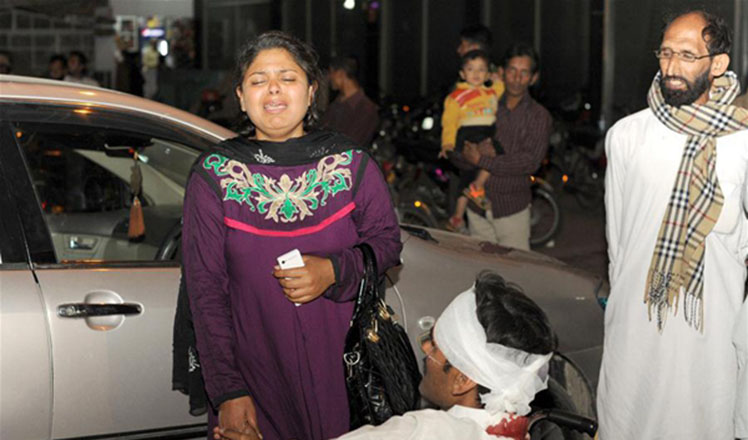
 69 killed, 300 injured as suicide blast hits Pakistan on Easter
69 killed, 300 injured as suicide blast hits Pakistan on Easter
 Shanghai Disneyland fans endure long wait, high ticket prices
Shanghai Disneyland fans endure long wait, high ticket prices
 Giant pink 'Floating Fish' displayed in E China
Giant pink 'Floating Fish' displayed in E China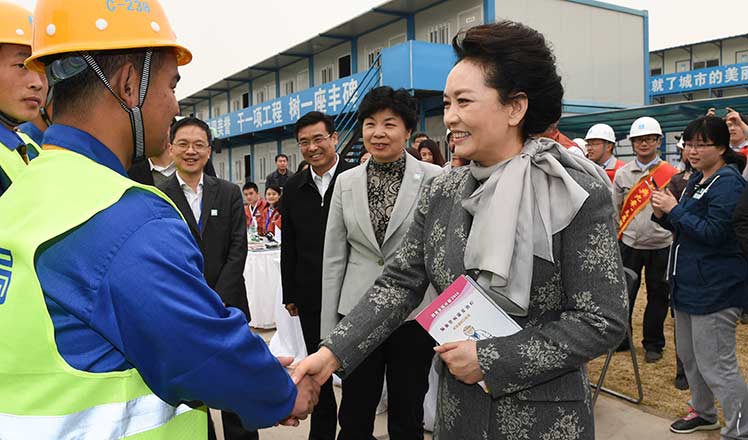
 First lady Peng Liyuan leads fight against tuberculosis
First lady Peng Liyuan leads fight against tuberculosis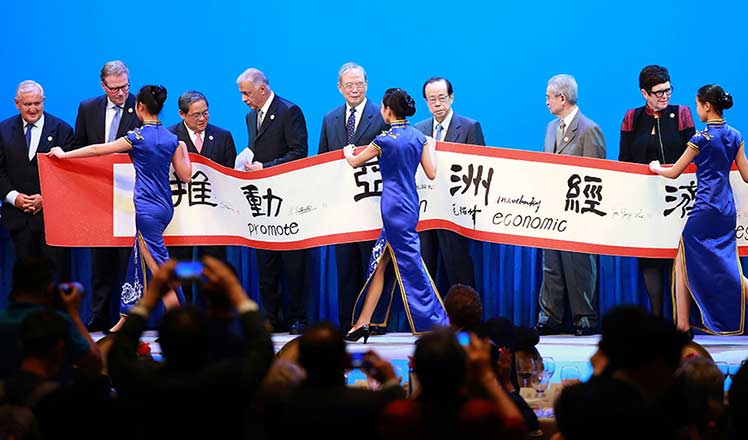
 Faces at Boao Forum for Asia Annual Conference
Faces at Boao Forum for Asia Annual Conference
 In photos: Lunar eclipses visible in eastern China
In photos: Lunar eclipses visible in eastern China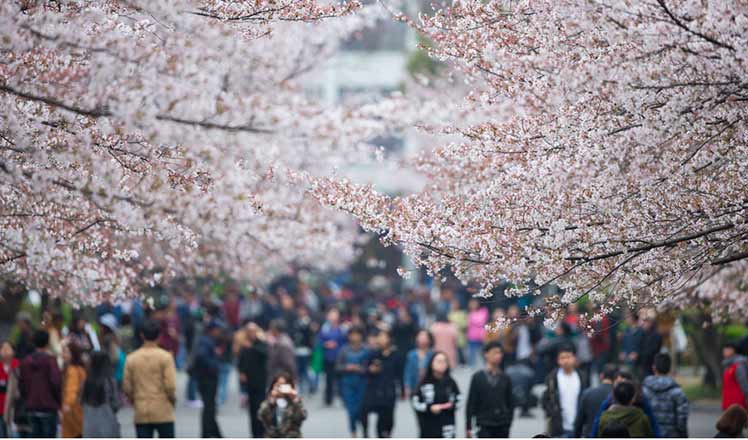
 Chinese chasing Spring blossoms around the country
Chinese chasing Spring blossoms around the country
Most Viewed
Editor's Picks

|

|

|

|

|

|
Today's Top News
Marriott unlikely to top Anbang offer for Starwood: Observers
Chinese biopharma debuts on Nasdaq
What ends Jeb Bush's White House hopes
Investigation for Nicolas's campaign
Will US-ASEAN meeting be good for region?
Accentuate the positive in Sino-US relations
Dangerous games on peninsula will have no winner
National Art Museum showing 400 puppets in new exhibition
US Weekly

|

|







